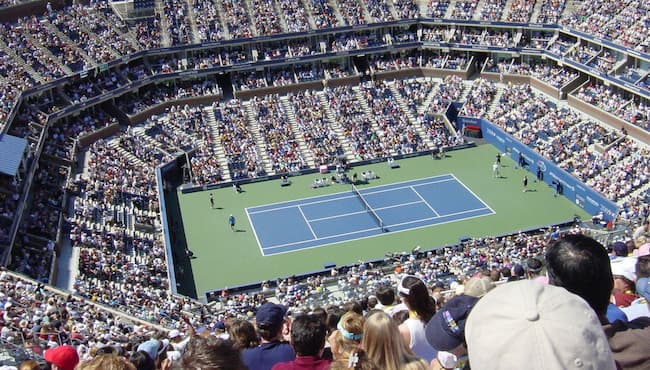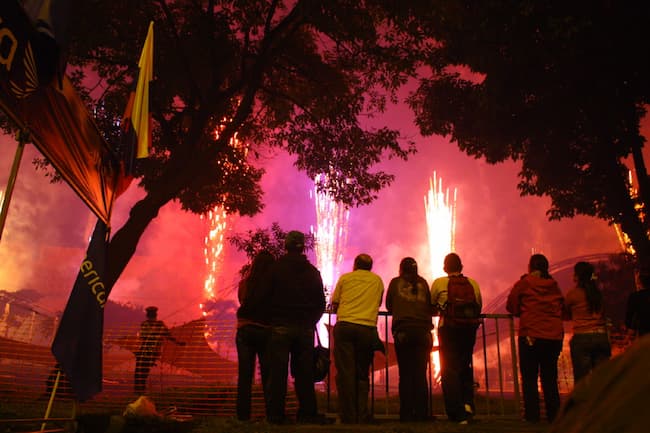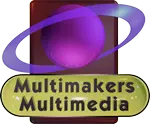Developing the Desugn Idea page 2 of 3
Concept Paper (How to write one)
Stage right there are two mounds apparently made of sand and stacked sandbags, separated by about 8 feet. Stage left is a short wall built like a small bunker.
The entire stage is covered in sand, perhaps the remnant of an old jeep, and small mounds. There is a full stage cyc.
There is a single soldier behind each of the more center foxholes. The soldier stage right is Joe, a typical member of the U.S. Army in a pale camouflage green brown tan uniform, armed with a rifle. The soldier stage left is Mohammed -- an Afghani male dressed in tan with a head wrap and semi automatic.
It is midday, July 10, and it is hot -- 113°F. Occasional gunshots and mortar shells can be heard in the background. Scattered upstage small squirts of compressed air helped the sand to look like minor explosions.
Tim (offstage) 1, 2, 3...
Joe quickly fires, stage left, Mohammed ducks.
Another soldier (Tim) in full U.S. Army fatigues runs on from stage right and ducks behind the offstage foxhole.
Joe Billy going to be okay?
Tim Yes. Javier and I were able to get him to the medic. He says Billy is stable, though he may never be able to throw a football again.
Joe: Shit. They might as well have killed him.
Tim Well, I'm not sure Tracy would agree.
Joe Yeah. At least he'll probably get to see her pretty soon.
Tim Which is probably more than you can say for us.
Joe OK; so what are the orders now? Long pause. Are we pulling back?
Tim They need us to hold the line. We have to stop them from advancing until we can get some air support. This is an important junction for us.
Joe It's always an important junction... Long pause but the background noises continue. When the hell are we going to get the air support?
Tim Look, we at least have to cover for them as they pull Billy back to the hospital.
Mohammed jumps up and takes a few shots at Joe's foxhole, then ducks.
Joe holds his gun above his head and shoots blindly stage left.
Mohammed takes aim at Joe's foxhole when Tim stands up to take a shot. Mohammed shoots Tim -- Joe sees him get hit.
Tim falls to the ground dead, dropping his gun to his side.
Joe Tim! Are you okay? Long pause. Tim?
Mohammed is crouching trying to see if he can advance.
Joe shoots, but misses -- they both return to active hunting positions
Joe looks inwardly thoughtful for a moment. The background noises fade to a stop. Then Joe stands up, steps down stage and speaks directly to the audience.
Joe Damn, man. Tim's dead. He was a really good soldier. He'd been on the front lines for months before I'd even got here. And Billy? He was our Captain. A more standup guy you'll never meet -- he put his life on the line for all of us many times. But he lived for football -- and no matter what anyone says, I think he loved football more than he loved Tracy even. And those bastards killed Tim and took Billy's dreams away? I will hold the line.
As Joe returns to his active position, the background sounds and occasional sand explosions resume. Joe fires stage left and we're back to the normal world of the play.
The regular firefight continues for a minute or two.
Mohammed looks inwardly thoughtful for a moment. The background noises fade to a stop. Then Mohammed stands up, steps down stage and speaks directly to the audience.
Mohammed I am not even military. I am just... what you would call a blacksmith. I did not ask for this war. I hear your country doesn't even think this is a war. Some kind of occupational peacekeeping. I am just a simple man. My wife and son were at the market. When US troops decided our market -- which has been there for hundreds of years -- should no longer be. That my son, only seven years old -- should no longer be. Civilian casualties, in my home country, that did not start this war. My wife, my beautiful wife, who never hurt anyone, was lying there with her insides pouring out of her stomach. And her face, her face which was always smiling, was cut up nearly beyond recognition. My boy. My boy was barely alive. When I ran to him after hearing of the attack, he could not breathe easily, and when he spoke, he spat blood, his innocence was still with him before his innocence was no longer in his eyes.
I could no longer sit by -- I could no longer not be involved. You must leave my home. You must leave my country. You have been killing us for years. You must leave.
As Mohammed returns to his active position the background sounds and occasional sand explosions resume. Mohammed fires stage right and we're back to the normal world of the play.
The regular firefight continues for a minute or two.
Joe looks inwardly thoughtful for a moment. The background noises fade to a stop. Then Joe stands up, steps down stage and speaks directly to the audience.
Joe Dear God, I know it's important that I hold this line. In the distance I can see that Billy is being loaded into an ambulance. I know that in 30 seconds, he'll be on his way to safety. I hope my dad's proud of me. My mom, my mom always understood me -- and when she didn't -- she trusted me. That meant the world to me. My brother Jerry went to college -- he was always so good at sports: he and dad always had a lot to talk about. Basketball scholarship, and he used it to study theater. My dad wouldn't admit it, but I'm sure he was disappointed -- what the hell does a lighting designer do anyway? He laughs. Guess I'll never know. But I sure hope Jerry knows. We're fighting so he can be an artist. So he can marry and have two kids -- someday. I'm here, holding the line, so they can be free to choose whatever they want. So these towel headed monsters can't be blowing up planes, blowing up cars, or pissing out oil over the beautiful America landscape.
As Joe returns to his active position the background sounds and occasional sand explosions resume. Joe fires stage left and we're back to the normal world of the play.
The regular firefight continues for a minute or two.
A plane can be heard approaching, flying overhead. The loud, unmistakable whistle of a bomb closes down on their position.
Blackout.
End of play.
Writing Your Lighting Concept Paper
-
Paragraph one is a quick play analysis versus a synopsis. An analysis is a description of what you feel the play is about, as compared to a synopsis which is a quick telling of what happened. Re-read Foxhole if you need to refresh your memory!
Example analysis:
Foxhole, by Kade Mendelowitz, is about the unrelenting ways of war. Each side is clear about its objectives and is willing to do anything to win.
We all know this story; we read the play, too. The question here is: what did the play mean to you - not what happened.Don’t give a synopsis like ...
Foxhole, by Kade Mendelowitz, is about two soldiers trying to kill each other until a plane comes and blows them both to bits. - Paragraph two is a metaphor you can use to inspire / help visualize what the lighting for the play should be like.
- In paragraph three (or however many paragraphs it takes) describe how the first two paragraphs work together with your vision of the lighting design.
A little short, but you should get the idea. Use descriptive terms. Really picture it in your mind and get excited about it!It is a very clear and hot sunny day with the sun beating down from above right -- we can clearly see everything that is happening. The action is exposed much like it is in a professional tennis match. The sun is slightly yellow and dry -- harsh. There is no escape from it. There are strong shadows, but everything is still visible. When Joe or Mohammed step down stage it is as if he is leaving the action temporarily -- when the world is put on hold, much like a sports commentator who talks about and examines what we just saw.
Here is an alternative example lighting concept paper:




 © Multimakers Multimedia
© Multimakers Multimedia